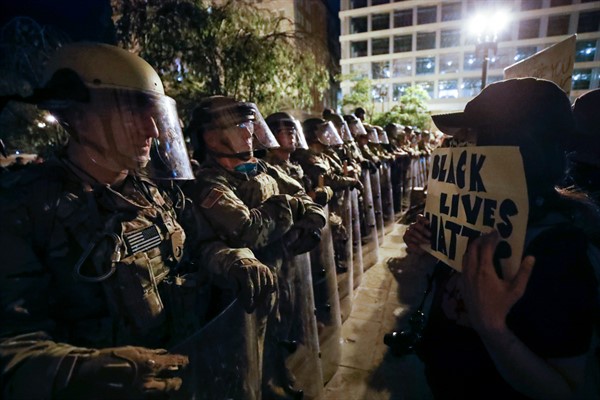The past two weeks may have marked a turning point in American civil-military relations. President Donald Trump threatened to deploy active-duty troops to subdue domestic political protests; the secretary of defense suggested governors should “dominate the battlespace” of major U.S. cities, only to later walk back his remarks; and the chairman of the Joint Chiefs of Staff, Gen. Mark Milley, the country’s highest-ranking military officer, appeared alongside Trump at a photo-op near the White House after National Guard troops had helped forcibly clear the area of protesters. Milley later apologized, saying he “should not have been there.”
Although these events may seem sui generis, they are consistent with two ongoing trends. First is the increasing involvement of the military in partisan politics over the past four decades. Second is the legacy of racism in the military itself. These trends openly collided recently, raising questions about whether and how the military will be involved in domestic political contests and debates in the years to come.
By tradition and by law, the U.S. military is a nonpartisan institution. The reason for its nonpartisanship, as the Congressional Research Service explains, is so the military can be counted on to “defend all Americans regardless of their affiliation.” This professional standard is also spelled out in the Uniform Code of Military Justice, and further articulated in Department of Defense regulations.

